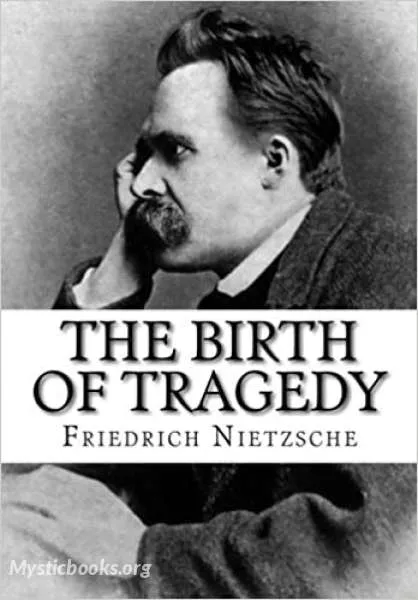
The Birth of Tragedy
'The Birth of Tragedy' Summary
Nietzsche found in classical Athenian tragedy an art form that transcended the pessimism and nihilism of a fundamentally meaningless world. The Greek spectators, by looking into the abyss of human suffering and affirming it, passionately and joyously affirmed the meaning of their own existence. They knew themselves to be infinitely more than petty individuals, finding self-affirmation not in another life, not in a world to come, but in the terror and ecstasy alike celebrated in the performance of tragedies.
Originally educated as a philologist, Nietzsche discusses the history of the tragic form and introduces an intellectual dichotomy between the Dionysian and the Apollonian (very loosely: reality as disordered and undifferentiated by forms versus reality as ordered and differentiated by forms). Nietzsche claims life always involves a struggle between these two elements, each battling for control over the existence of humanity. In Nietzsche's words, "Wherever the Dionysian prevailed, the Apollonian was checked and destroyed.... wherever the first Dionysian onslaught was successfully withstood, the authority and majesty of the Delphic god Apollo exhibited itself as more rigid and menacing than ever." And yet neither side ever prevails due to each containing the other in an eternal, natural check or balance.
Nietzsche argues that the tragedy of Ancient Greece was the highest form of art due to its mixture of both Apollonian and Dionysian elements into one seamless whole, allowing the spectator to experience the full spectrum of the human condition. The Dionysian element was to be found in the music of the chorus, while the Apollonian element was found in the dialogue which gave a concrete symbolism that balanced the Dionysian revelry. Basically, the Apollonian spirit was able to give form to the abstract Dionysian.
Before the tragedy, there was an era of static, idealized plastic art in the form of sculpture that represented the Apollonian view of the world. The Dionysian element was to be found in the wild revelry of festivals and drunkenness, but, most importantly, in music. The combination of these elements in one art form gave birth to tragedy. He theorizes that the chorus was originally always satyrs, goat-men. (This is speculative, although the word “tragedy” τραγωδία is contracted from trag(o)-aoidiā = "goat song" from tragos = "goat" and aeidein = "to sing".) Thus, he argues, “the illusion of culture was wiped away by the primordial image of man” for the audience; they participated with and as the chorus empathetically, “so that they imagined themselves as restored natural geniuses, as satyrs.” But in this state, they have an Apollonian dream vision of themselves, of the energy they're embodying. It's a vision of the god, of Dionysus, who appears before the chorus on the stage. And the actors and the plot are the development of that dream vision, the essence of which is the ecstatic dismembering of the god and of the Bacchantes' rituals, of the inseparable ecstasy and suffering of human existence.
After the time of Aeschylus and Sophocles, there was an age where tragedy died. Nietzsche ties this to the influence of writers like Euripides and the coming of rationality, represented by Socrates. Euripides reduced the use of the chorus and was more naturalistic in his representation of human drama, making it more reflective of the realities of daily life. Socrates emphasized reason to such a degree that he diffused the value of myth and suffering to human knowledge. For Nietzsche, these two intellectuals helped drain the ability of the individual to participate in forms of art, because they saw things too soberly and rationally. The participation mystique aspect of art and myth was lost, and along with it, much of man's ability to live creatively in optimistic harmony with the sufferings of life. Nietzsche concludes that it may be possible to reattain the balance of Dionysian and Apollonian in modern art through the operas of Richard Wagner, in a rebirth of tragedy.
In contrast to the typical Enlightenment view of ancient Greek culture as noble, simple, elegant and grandiose, Nietzsche believed the Greeks were grappling with pessimism. The universe in which we live is the product of great interacting forces; but we neither observe nor know these as such. What we put together as our conceptions of the world, Nietzsche thought, never actually addresses the underlying realities. It is human destiny to be controlled by the darkest universal realities and, at the same time, to live life in a human-dreamt world of illusions.
The issue, then, or so Nietzsche thought, is how to experience and understand the Dionysian side of life without destroying the obvious values of the Apollonian side. It is not healthy for an individual, or for a whole society, to become entirely absorbed in the rule of one or the other. The soundest (healthiest) foothold is in both. Nietzsche's theory of Athenian tragic drama suggests exactly how, before Euripides and Socrates, the Dionysian and Apollonian elements of life were artistically woven together. The Greek spectator became healthy through direct experience of the Dionysian within the protective spirit-of-tragedy on the Apollonian stage.
Book Details
Language
EnglishOriginal Language
GermanPublished In
1872Authors
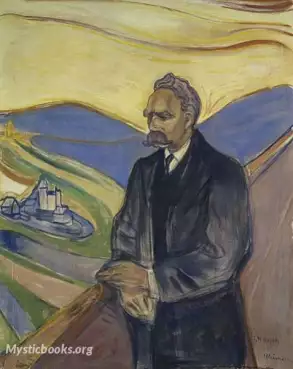
Friedrich Nietzsche
Germany
Nietzsche's writing spans philosophical polemics, poetry, cultural criticism, and fiction while displaying a fondness for aphorism and irony. Prominent elements of his philosophy include his radical c...
Books by Friedrich NietzscheDownload eBooks
Listen/Download Audiobook
- Select Speed
Related books
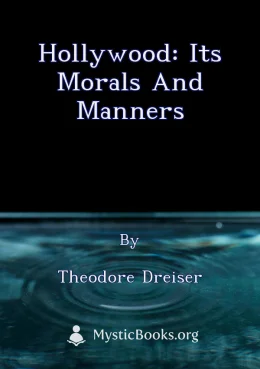
Hollywood: Its Morals and Manners by Theodore Dreiser
Serialized in Shadowland from November 1921 to February 1922, Hollywood: Its Morals and Manners is Theodore Dreiser's shocking four part expose on the...

Mutual Aid: A Factor of Evolution by Peter Kropotkin
Mutual Aid: A Factor of Evolution is a 1902 collection of anthropological essays by Russian naturalist and anarchist philosopher Peter Kropotkin. The...

London Labour and the London Poor Volume I by Henry Mayhew
London Labour and the London Poor is a work of Victorian journalism by Henry Mayhew. In the 1840s, he observed, documented and described the state of...
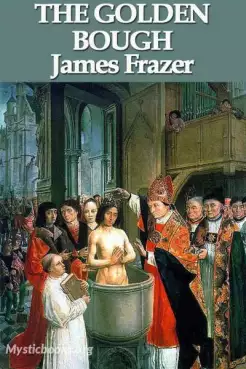
The Golden Bough by James Frazer
The Golden Bough: A Study in Comparative Religion (retitled The Golden Bough: A Study in Magic and Religion in its second edition) is a wide-ranging,...
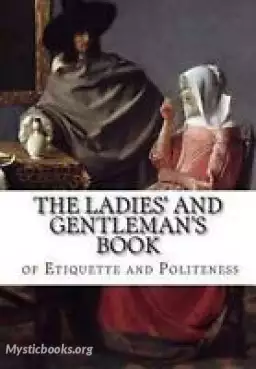
The Gentleman and Lady's Book of Politeness and Propriety of Deportment by Elisabeth Celnart
The Gentleman and Lady's Book of Politeness and Propriety of Deportment

Thoughts on South Africa by Olive Schreiner
'Thoughts on South Africa' is a collection of Schreiner's observations of colonial South Africa in the early 19th century, mostly regarding Boer-Engli...
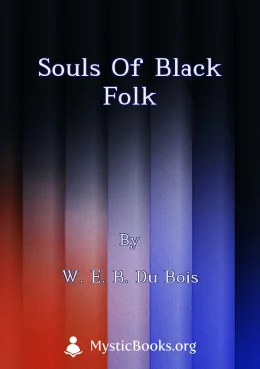
Souls of Black Folk by W. E. B. Du Bois
The Souls of Black Folk is a well-known work of African-American literature by activist W.E.B. Du Bois. The book, published in 1903, contains several...

Pictures of Jewish Home-Life Fifty Years Ago by Hannah Trager
Hannah Trager published Pictures of Jewish Home-Life Fifty Years Ago in 1926, so the book is a portrait of day to day life for a Jewish family in Jeru...
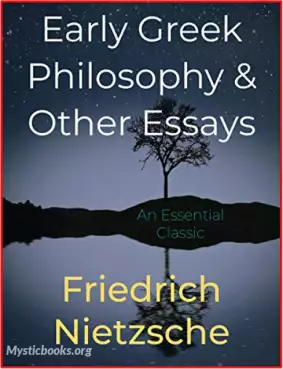
Early Greek Philosophy and Other Essays by Friedrich Nietzsche
The essays contained in this volume treat of various subjects. With the exception of perhaps one we must consider all these papers as fragments. Writt...
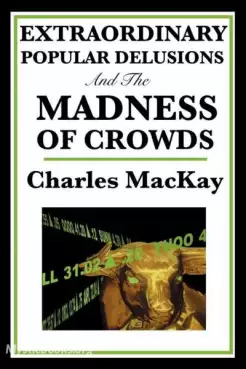
Memoirs of Extraordinary Popular Delusions and the Madness of Crowds, Volume 2 by Charles Mackay
"Men, it has been well said, think in herds; it will be seen that they go mad in herds, while they only recover their senses slowly, and one by one."...
Reviews for The Birth of Tragedy
No reviews posted or approved, yet...